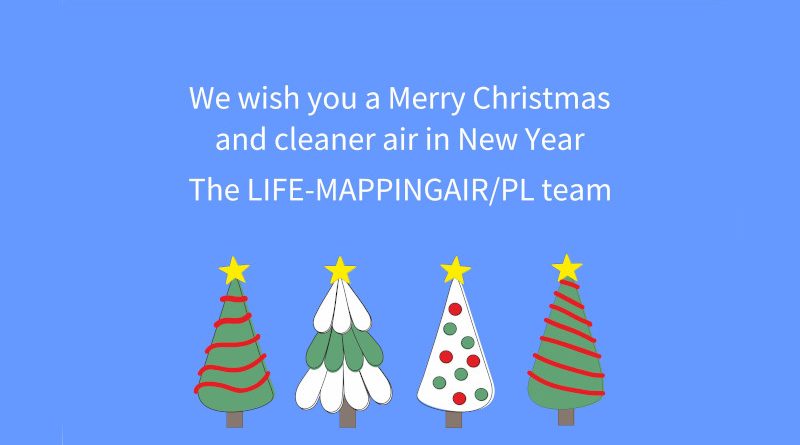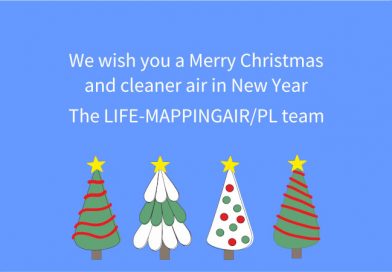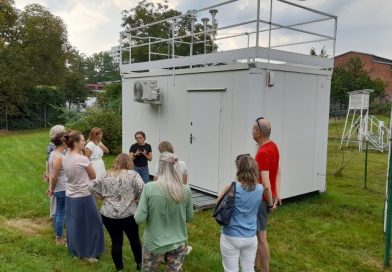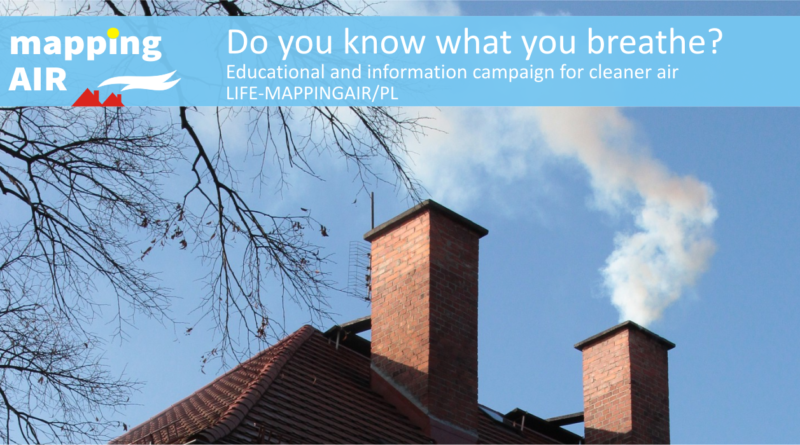
About the Project
Main objectives of the Project
In 2018, the University of Wrocław – Department of Climatology and Environmental Protection, together with the Wrocław University of Technology and the City of Bydgoszcz obtained funding for the implementation of an information and educational project entitled “Do you know what you breathe?” Educational and information campaign for cleaner air, under the European Union LIFE financing instrument and co-financed by National Fund for Environmental Protection and Water Management.
Total project budget: is 8 218 592 PLN, University of Wroclaw is the main beneficiary and the leader of project, co-beneficiaries and partners of the Project are the Wroclaw University of Technology – Wrocław Centre for Networking and Supercomputing and the City of Bydgoszcz. The project manager is dr Tymoteusz Sawiński (University of Wrocław – Department of Climatology and Environmental Protection).
The project is a continuation and development of the LIFE-APIS PL project “Air Pollution and biometeorological forecast and Information System” which was completed in 2017 and also financed under the LIFE instrument and the NFEPWM subsidy (budget PLN 4,359,924). As a part of the project, a system of biometeorological and air quality forecasts was created, which is presented on the website https://powietrze.uni.wroc.pl.
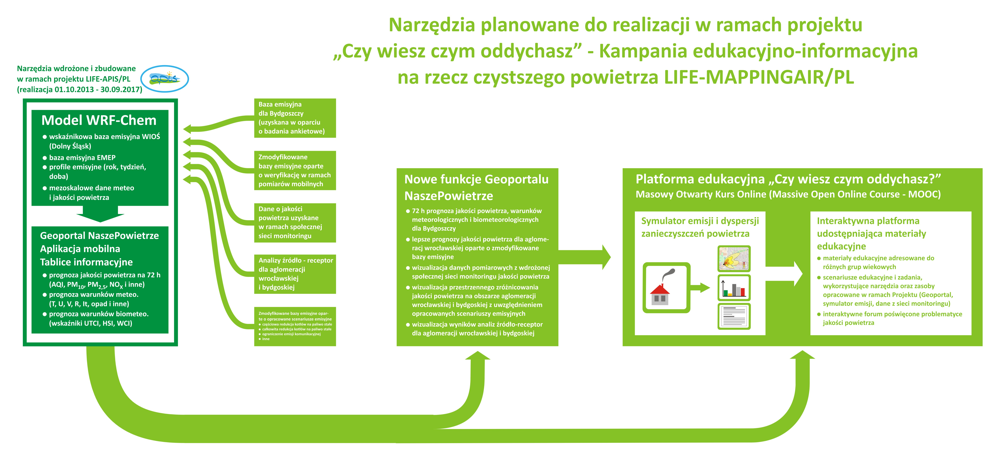
It combines scientific aspects (forecasting of air quality) and practical aspects, meeting current environmental problems and social expectations, such as improvement of air quality or universal access to reliable information about air pollution in the place of residence. The subject of the project refers to an important research problems in the EU, including those defined in the planned Horizon Europe program, and also falls under the main goals of the EU environmental policy.
The main tasks planned under the Project are the construction of an educational platform dedicated to air quality issues in the project area (open access platform without restrictions, with the possibility of any extension) and conducting an educational campaign based on the platform, dedicated to air quality issues in urban areas (scale of threat , types of threats, who is responsible for air quality management, how to protect yourself, how to limit the problem – real possibilities and methods of action). The platform will integrate the solutions implemented as part of the completed LIFE-APIS/PL Project (air quality forecasts, meteorological and biometeorological conditions, Geoportal NaszePowietrze), with new educational and information tools built as part of the planned project.
Project implementation area: The project was planned for implementation in the cities of Wrocław and Bydgoszcz urban and suburban areas.
Project implementation time – 01.04.2019 – 31.03.2023
Tasks of the Project:
Task I
Design and implementation of an educational platform based on MOOC technology. The platform will contain courses and a knowledge base on air quality and its environmental and health effects and ways to reduce air pollutants emissions, supplemented by simple air pollutants emission and dispersion calculator.
Task components:
- Preparation and implementation of a cross-platform e-learning education and information system based on MOOC technology (Massive Open Online Courses)
- Preparation of educational materials in the field of air quality, its environmental and health effects, as well as methods of reducing emissions and sustainable mobility in the form of on-line courses for various age groups in cooperation with medical and environmental specialists, lawyers, teaching methodologists, etc.
- Construction of an air pollution emission and dispersion calculator as a multi-platform on line tool that illustrating the impact of emitters and used fuel types on aerosanitary conditions.
- Translation of the educational platform and materials into English and the languages of the neighboring countries of the Project area (Czech, German).
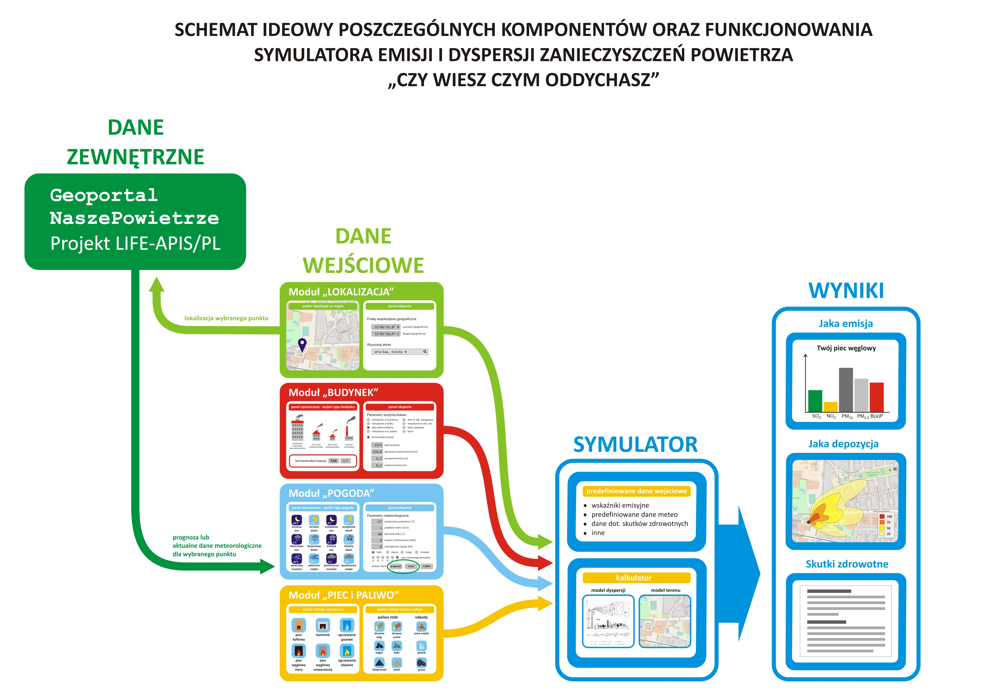
Selected topics
- The impact of air pollution on human health, with particular emphasis on cardiovascular and respiratory system disseases;
- Mortality and morbidity associated with the impact of air pollution on health – methods of epidemiological analysis
- Characteristics of risk groups and threats for people in these groups
- Adverse health symptoms associated with the effects of air pollution – what to look for
- Ways to prevent and reduce the negative health effects of exposure to air pollution
- Advantages of a clean environment
- Legal conditions for air protection in Poland and the European Union, including anti-smog resolutions and similar local laws in EU countries,
- Ecological heating systems for households – costs and possibilities of their implementation and use
- Thermomodernization of housing – costs and benefits in the context of improving air quality
- The use of green technologies as a way to improve air quality
- The role of green infrastructure in air quality improvement
Task II
Modernization and expansion of air quality information system in the Project area
Task components:
- Improvement of air quality forecasts in the project area, through the implementation of new methods and modeling tools (ensemble forecasts, assimilation of in-situ measurement data).
- Verification of existing emission databases based on measurement data and analytical methods
- Verification of air quality forecasts based on the results of stationary measurements from national monitoring network, as well as social monitoring system planned for implementation under the Project and mobile air pollutants measurements.
- Preparation of air quality forecasts taking into account emission scenarios, assuming different emission levels from individual sectors, including the introduction of low-emission zones, source-receptor analysis for selected areas, together with ex-ante evaluation of planned activities.
Air quality forecasts for the Lower Silesian Voivodship are currently available at the geoportal NaszePowietrze (OurAir) https://powietrze.uni.wroc.pl
Task III
Design and implementation of social monitoring system, including the preparation and installation of low-cost sensors with a data transmission system which will be integrated with geoportal NaszePowietrze
Task components:
- Preparation, calibration and installation of low-cost sensors with a data transmission system in selected locations in the Project area
- Integration of measurement results with the geoportal (module presenting measurement results in on-line mode)
- Preparation and publication of a “Good Practice Handbook” that will allow recipients to prepare the measuring station themselves and include it in the monitoring network. Preparation of an interface enabling the inclusion of other sensors in the system (eg installed outside the project, by persons or organizations such as smog alerts), o how much they meet the requirements in accordance with the prepared good practice manual.
- Implementing a social “issue portal” for the project area, enabling social inventory of emission sources from the municipal sector and households.
Task IV
Planning and conducting of informational and educational campaigns “Do you know what you breathe” along with training courses for educators.
Task components:
- Conducting educational campaigns based on prepared educational platform, social air quality monitoring system and forecasts geoportal.
- Conducting training courses for local government and administration officials in the use of tools built under the Project.
- Conducting training for educators in the use of the designed educational platform (classes for teachers and members of non-governmental organizations dealing with education and information); the training will end with a certificate and access to a part of the platform that will allow to manage e-learning classes.
- Implementing information/consultation points on good practices for improving air quality with energy/environmental consultants.
- Carrying out activities promoting the project (conferences, information and training meetings, open art competitions on issues related to air quality, publications, articles, conferences).
- Educational and information campaigns in social media and public transport.
- “Young reporters for cleaner air” competitions
Project goals
The expected results of the Project are increasing of the ecological awareness of residents of the project area and their involvement in activities aimed at improving air quality, by:
Supporting activities related to the implementation of local anti-smog resolutions:
- enabling reduction of emissions during adverse weather conditions (messages in local media, using the ITS system),
- reduction of emissions in districts for which emission indicators are the highest (by 10%),
- reducing the number of days on which the limit value has been exceeded (not less than by 8% compared to the base year);
Building an air quality information system in the region:
- increasing social participation through involvement in the construction of a social monitoring system (number of people using data from social monitoring system not less than 1000),
- an indication of the areas for which the intervention of local authorities should be carried out first;
- involvement of medical services in conducting information and educational campaigns as well as trainings for them will reduce health risks related to unfavorable air quality during high concentration episodes;
- increasing public awareness of the impact of air pollution on the environment and public health (by 15% compared to the current status).
